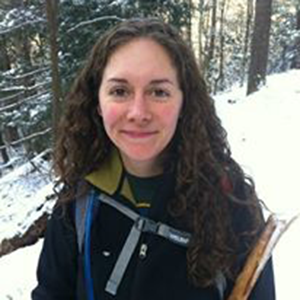Diagnosis and Treatment of Substance Use Disorders

— Offered by Fulbright College of Arts & Sciences and the School of Social Work —
The five-course Diagnosis and Treatment of Substance Use Disorders series will explore the use and abuse of drugs and alcohol with an emphasis on evidence-based treatment approaches to help engage and treat chemically dependent clients. Best practices to be reviewed will include Motivational Interviewing (MI), Cognitive Behavioral Therapy (CBT), harm reduction approaches, and Medication Assisted Treatment (MAT).
$50 / course
Take courses individually OR pass all five courses plus comprehensive final exam to earn 3 hours of college credit
6 - 10 Weeks Per Course
38 Professional Development Hours
Textbooks are not included in the cost.
U of A 10% discount available - view details
What is Addiction?
8 PD HOURS
Learning Objectives
- Understand the history of and current drug use trends in the United States.
- Explain how addiction is a response to trauma and a disease rather than a moral failing.
The Assessment and Diagnosis of Substance Use Disorders
6 PD HOURS
Learning Objectives
- Select appropriate assessment tools for diagnosing substance use disorders.
- Explain how thorough assessment is imperative to accurate diagnosis and appropriate selection of treatment interventions.
- Use the DSM-V to diagnose substance use disorders.
- Identify the mood disorders most commonly associated with substance use disorders.
- Learn how to diagnose a client with a dual diagnosis.
Treatment Approaches Part 1: Motivational Interviewing, CBT, DBT, and 12-Step Programs
8 PD HOURS
Learning Objectives
- Identify and learn to apply different Motivation Interviewing techniques.
- Describe how Cognitive Behavioral Therapy can be used with clients who are chemically dependent.
- Describe how Dialectical Behavioral Therapy can be an effective approach when working with clients who have a dual diagnosis.
- Describe the effectiveness of the 12-Step Model, discuss pros and cons, and identify client groups appropriate for 12-Step program referrals.
Treatment Approaches Part 2: Medication-Assisted Treatment, Harm Reduction, and Relapse
Prevention
6 PD HOURS
Learning Objectives
- Describe how medication-assisted treatment and traditional treatments can increase chances of maintaining long-term sobriety, and how to identify good candidates for different treatments.
- Identify and describe harm reduction strategies and how they can assist in relationship- and rapport- building with chemically dependent individuals.
- Describe the benefits of naloxone distribution and identify local resources that provide naloxone to individuals and first responders.
Relapse Prevention and Relapse Prevention Planning
10 PD HOURS
Learning Objectives
- Identify the risk factors for relapse.
- Evaluate different approaches to relapse prevention planning.
- Identify effective and individualized treatment strategies to use in relapse prevention planning with clients.
Comprehensive Final Exam Optional
Pass all five courses and this exam to earn 3 hours of college credit at the University of Arkansas
$50 / exam
Required Textbooks:
Szalavitz, M. (2016). Unbroken Brain: A Revolutionary New Way of Understanding Addiction. New York: St. Martin’s Press.
Urschel, H. C. (2009). Healing the Addicted Brain: The Revolutionary, Science-Based Alcoholism and Addiction Recovery Program. Illinois: Sourcebooks, Inc
Optional:
McKay, M. (2011). Thoughts and Feelings: Taking Control of Your Moods and Your Life. California: New Harbinger Publications, Inc.

Whitney Payne
Clinical Assistant Professor, LCSW, AADC
Whitney Payne is a licensed social worker, substance abuse counselor, and full-time faculty member for the UA School of Social Work. After earning her master’s degree, she was a substance abuse counselor at the Northwest Arkansas Community Correctional Center, working with women incarcerated for drug and drug-related crimes, most of whom were struggling with addiction. Working with criminal offenders and chemically dependent people has become her passion, and she hopes to continue working and advocating in this field for many years to come.